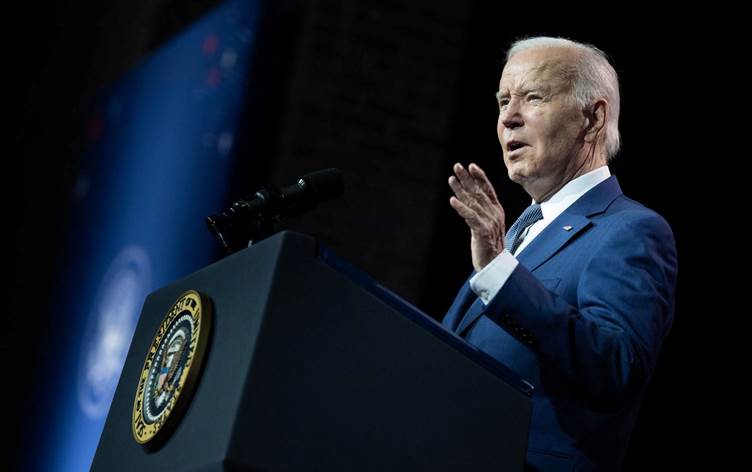Biden extends national emergency declaration for stabilization of Iraq

ERBIL, Kurdistan Region - United States President Joe Biden on Tuesday extended a national emergency declaration on the stabilization of Iraq issued by the White House 20 years ago, saying the obstacles to the reconstruction of the war-torn country still poses a threat to Washington’s foreign policy and national security.
Executive Order 13303 was declared by former US president George W. Bush in May 2003 prohibiting the export of certain goods and sanctioning certain entities and individuals deemed by the White House as an obstruction to Iraq’s “orderly reconstruction.”
The decree has been modified multiple times throughout its 20-year history and relied upon to authorize further US action in Iraq, in efforts to bring stability to the country.
“The obstacles to the orderly reconstruction of Iraq, the restoration and maintenance of peace and security in the country, and the development of political, administrative, and economic institutions in Iraq continue to pose an unusual and extraordinary threat to the national security and foreign policy of the United States,” Biden wrote in a message to the Congress.
The US President said he was thereby extending the national emergency declaration in Iraq for an additional year.
"The continuation of this national emergency maintains sanctions imposed pursuant to the International Emergency Economic Powers Act (IEEPA) in Executive Orders 13303 of May 22, 2003; 13315 of August 28, 2003; 13350 of July 29, 2004; 13364 of November 29, 2004; 13438 of July 17, 2007; and 13668 of May 27, 2014," an official from the US Department of State told Rudaw's Diyar Kurda via email on Wednesday.
Rampant corruption plagues all levels of the Iraqi state. An investigation by the Iraqi finance ministry in October concluded that $2.5 billion in tax funds were stolen from state coffers between September 2021 and August 2022. Hundreds of billions of dollars have also gone missing from government accounts since the fall of Saddam Hussein’s regime.
The crisis-hit country ranks 157 out of 180 countries in Transparency International's corruption perceptions index.
The country also continues to have major security challenges due to the overwhelming presence of armed militias, the continued threat of sectarian warfare, and frequent attacks from neighboring countries accusing Iraq of sheltering groups that they consider as threats for their national security.
Under the command of then-President Bush, US forces invaded Iraq on March 20, 2003, accusing Iraq’s dictator Saddam Hussein of having weapons of mass destruction. After eight years of war, Washington began withdrawing its forces from Iraq in 2011, having found no evidence of WMDs.
The invasion brought forward sectarian warfare, the rise of violent militias and armed groups, and overall destruction and chaos which still impact all walks of life in the Iraqi state to this day. Over 100,000 Iraqi civilians and around 4,500 US troops were killed as a result of the war.
The Strategic Framework Agreement, which went into effect in 2009, seeks to normalize Baghdad-Washington relations through setting long-term bilateral economic, diplomatic, cultural, and security cooperation.
There are currently about 2,500 US troops providing military advice and assistance in Iraq and the Kurdistan Region, and leading the efforts of the global coalition seeking to ensure the enduring defeat of the Islamic State.
Updated at 8pm
